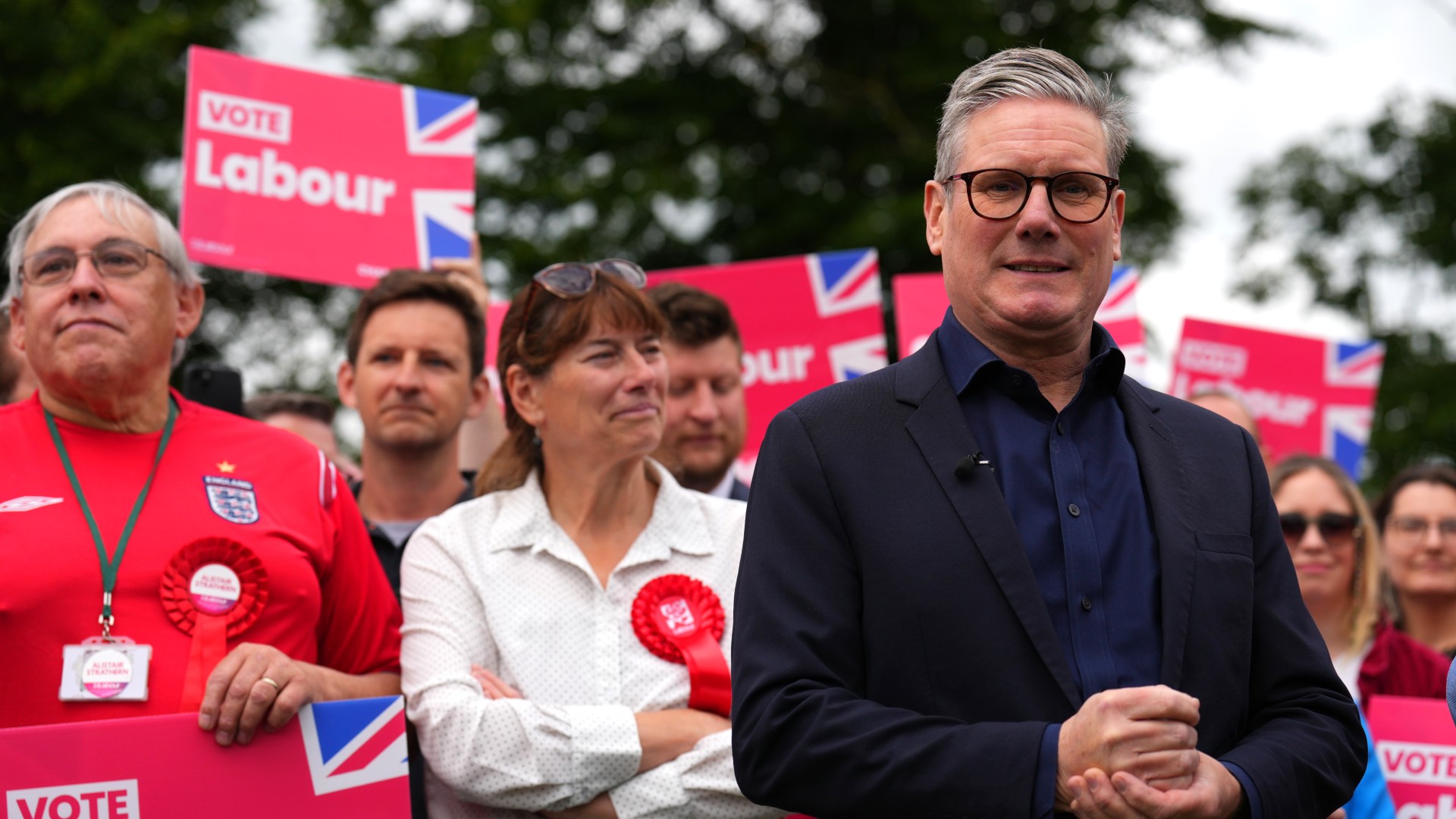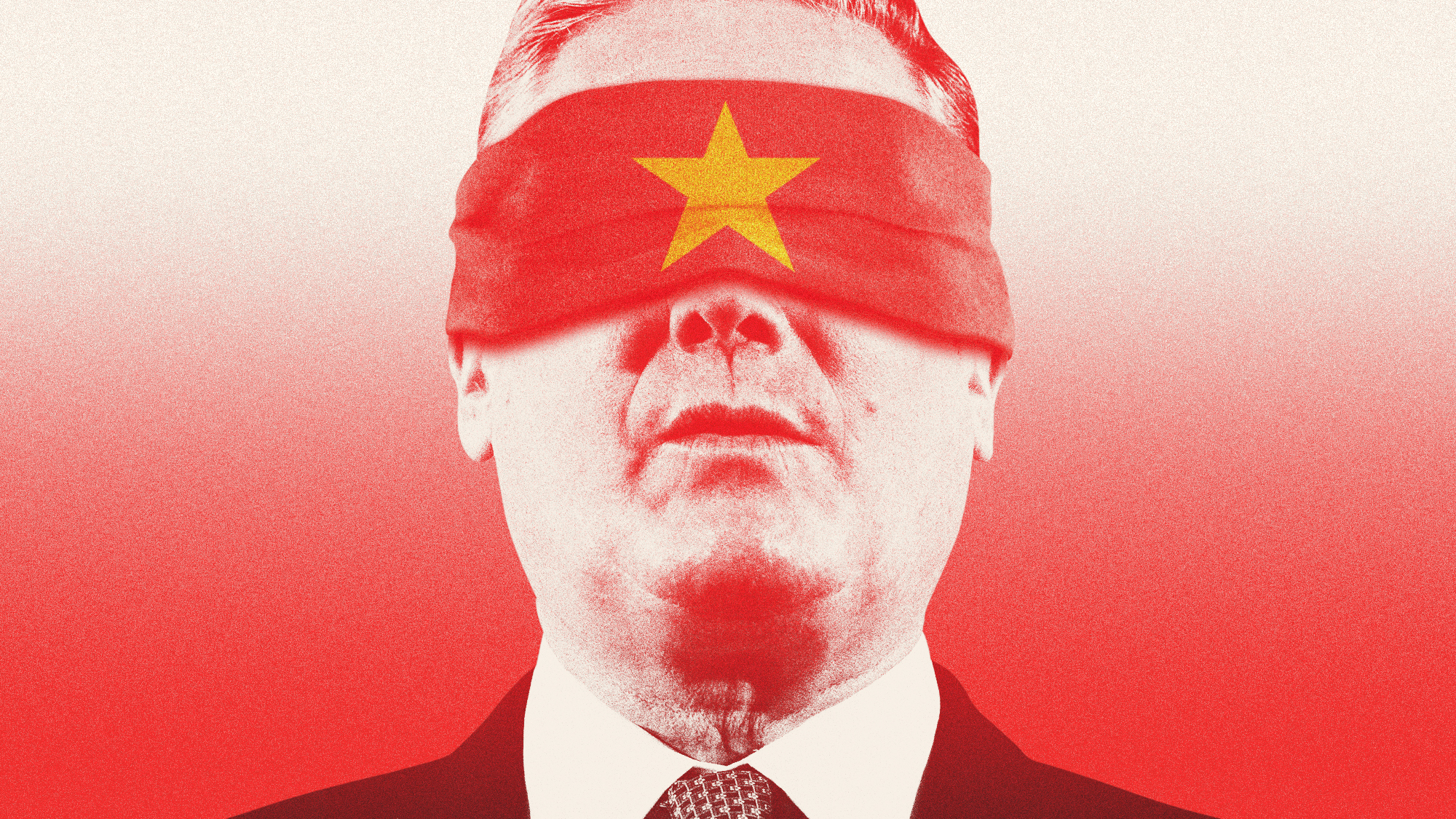Labour's manifesto: Keir Starmer's policies and promises
Safety-first approach aimed at winning back voters' trust and delivering on pledges

A free daily email with the biggest news stories of the day – and the best features from TheWeek.com
You are now subscribed
Your newsletter sign-up was successful
Politicians, or rather their "campaign shamans", believe that all the easily distracted modern public can really digest is a short list of policy points, said The Times.
In 1997, Tony Blair had five punchy Labour pledges printed on a card. Less successfully, in 2015, Ed Miliband carved all his policies on a megalith, the "Ed Stone".
For this election, Keir Starmer has focused on six easily digestible policies – framed around his five core "missions" – that form the centrepiece of a platform that has been criticised as lacking in ambition, but one that he hopes is achievable.
The Week
Escape your echo chamber. Get the facts behind the news, plus analysis from multiple perspectives.

Sign up for The Week's Free Newsletters
From our morning news briefing to a weekly Good News Newsletter, get the best of The Week delivered directly to your inbox.
From our morning news briefing to a weekly Good News Newsletter, get the best of The Week delivered directly to your inbox.
What are Labour's main policies?
In a bid to see off the traditional Tory attack line that Labour is the party of tax rises, the manifesto commits not to increase income tax, VAT and National Insurance for working people. Instead, it plans to raise £8.6 billion in new spending by adding VAT on private school fees, clamping down on tax avoidance, including scrapping non-dom status, and increasing the windfall tax on oil and gas companies.
Starmer's pledge to keep taxes low is contingent on a booming economy. A £7.3 billion national wealth fund, reform of the planning system (which Labour hopes will deliver 1.5 million new homes within five years) and a new industrial strategy are all aimed at securing the highest sustained growth in the G7.
On healthcare, which the latest Ipsos Issue Index showed is the top priority for voters, the party has pledged to cut NHS waiting times by delivering 40,000 more appointments each week, with the aim that all patients are treated within 18 weeks by the end of a first Labour term. This would be achieved by reforming the health service rather than a huge increase in funding.
Having watered down its flagship £28 billion a year green prosperity plan, Labour has promised to create a publicly owned company called Great British Energy to invest in new renewable energy projects, with £8.3 billion being committed over the next five years.
A free daily email with the biggest news stories of the day – and the best features from TheWeek.com
Around 6,500 new teachers will be recruited to fill the gaps in England's schools, with a pledge to also open an additional 3,000 nurseries as well as extending free breakfast clubs to every primary school in the country.
On law and order, a promise to recruit an extra 13,000 neighbourhood and community support officers and halve the level of violence against women and girls and incidents of knife crime form part of a plan to "crack down on anti-social behaviour".
Labour has pledged to set up a new Border Security Command to "smash criminal boat gangs" and reduce the asylum backlog in a bid to bring down levels of illegal immigration.
The manifesto also commits to boosting defence spending to 2.5% of GDP and drops the Corbyn-era pledge to scrap the Trident nuclear deterrent.
The party has also committed to votes for 16- and 17-year-olds and vowed to "modernise" the House of Lords by passing legislation to strip hereditary peers of their seats.
What has the reaction been?
While Andrew Fisher in The i Paper wrote that Labour's offering was "woefully inadequate to meet the problems we face", you have to remember, said Andrew Rawnsley in The Observer, that the motto of many successful Tory campaigns is: "who scares wins". Time and again, the Conservatives "have persuaded voters that Labour is just too risky to be trusted". That is why Starmer has made "de-risking" Labour central to his project, while at the same time taking the view that the public is "too cynical and mistrustful of politicians to buy into grandiose claims"; hence the modest pledges, which he can be sure to deliver.
Yet this has its drawbacks too. If Labour wins the election, then it will soon need to make some "potentially unpopular decisions", said the Institute for Government think tank. While the lack of detail in the manifesto is "understandable at this point, it would have been preferable to better prepare the public, and secure a mandate, for the difficult trade-offs ahead".
Having a "dizzying number of reviews and strategies to tackle some of the challenges facing the country" is "better than a shopping list of half-baked policy announcements", said Paul Johnson, director of the Institute for Fiscal Studies think tank. "But delivering genuine change will almost certainly also require putting actual resources on the table. And Labour's manifesto offers no indication that there is a plan for where the money would come from to finance this."
-
 Munich Security Conference: a showdown between Europe and Trump?
Munich Security Conference: a showdown between Europe and Trump?Today’s Big Question Report suggests European leaders believe they can no longer rely on the US for military support – but decoupling is easier said than done
-
 The Week Unwrapped: Have televised confessions quelled protests in Iran?
The Week Unwrapped: Have televised confessions quelled protests in Iran?Podcast Plus, why has Elon Musk turned from Mars to the Moon? And will the BBC prove to be a puzzles champ?
-
 The week’s best photos
The week’s best photosIn Pictures An Andean god, a rogue squirrel, and more
-
 The Mandelson files: Labour Svengali’s parting gift to Starmer
The Mandelson files: Labour Svengali’s parting gift to StarmerThe Explainer Texts and emails about Mandelson’s appointment as US ambassador could fuel biggest political scandal ‘for a generation’
-
 Will Peter Mandelson and Andrew testify to US Congress?
Will Peter Mandelson and Andrew testify to US Congress?Today's Big Question Could political pressure overcome legal obstacles and force either man to give evidence over their relationship with Jeffrey Epstein?
-
 Reforming the House of Lords
Reforming the House of LordsThe Explainer Keir Starmer’s government regards reform of the House of Lords as ‘long overdue and essential’
-
 How long can Keir Starmer last as Labour leader?
How long can Keir Starmer last as Labour leader?Today's Big Question Pathway to a coup ‘still unclear’ even as potential challengers begin manoeuvring into position
-
 What is at stake for Starmer in China?
What is at stake for Starmer in China?Today’s Big Question The British PM will have to ‘play it tough’ to achieve ‘substantive’ outcomes, while China looks to draw Britain away from US influence
-
 Can Starmer continue to walk the Trump tightrope?
Can Starmer continue to walk the Trump tightrope?Today's Big Question PM condemns US tariff threat but is less confrontational than some European allies
-
 Alaa Abd el-Fattah: should Egyptian dissident be stripped of UK citizenship?
Alaa Abd el-Fattah: should Egyptian dissident be stripped of UK citizenship?Today's Big Question Resurfaced social media posts appear to show the democracy activist calling for the killing of Zionists and police
-
 Is Keir Starmer being hoodwinked by China?
Is Keir Starmer being hoodwinked by China?Today's Big Question PM’s attempt to separate politics and security from trade and business is ‘naïve’